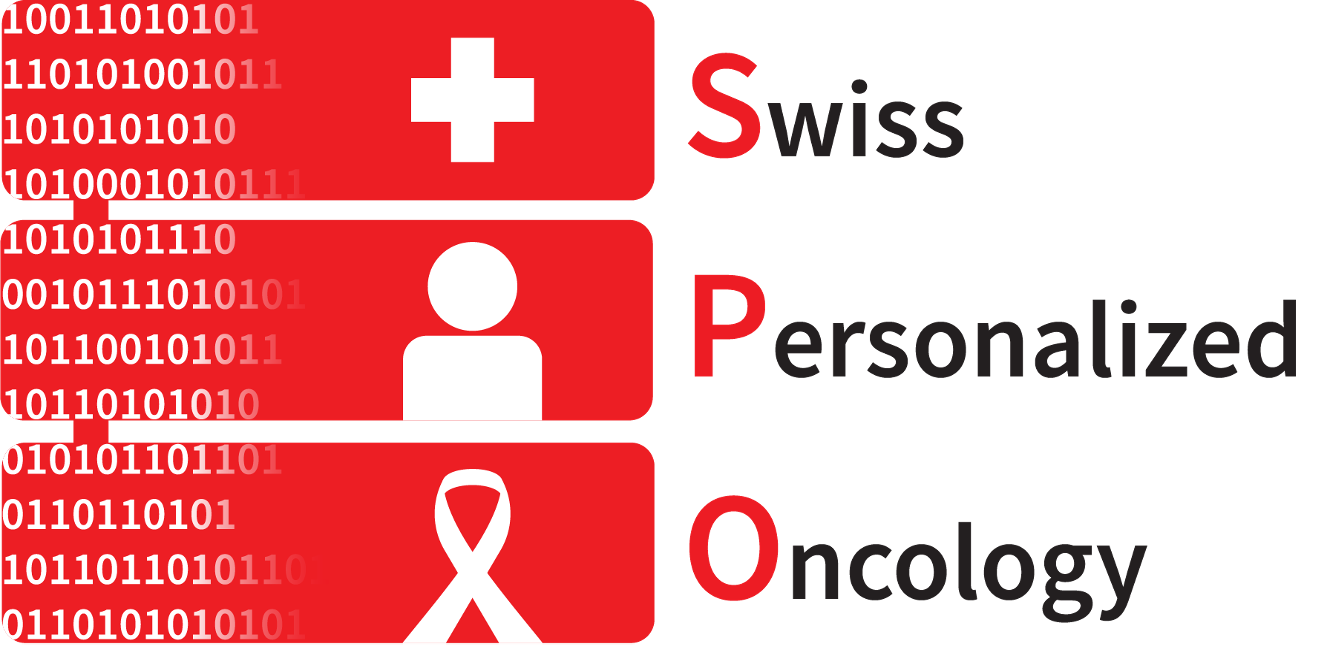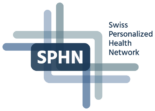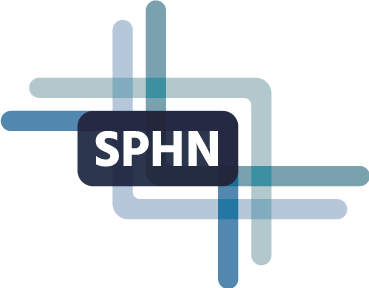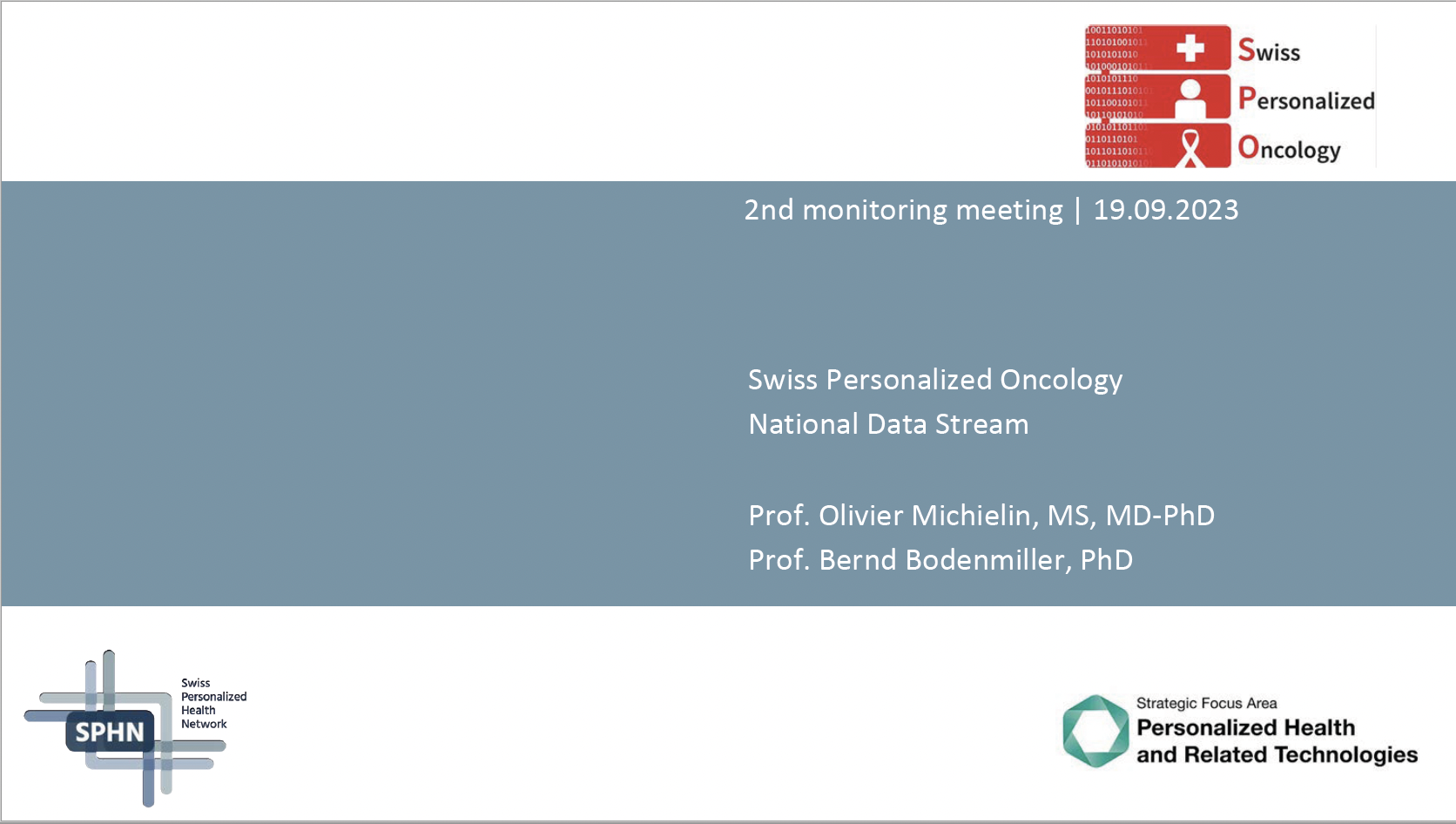Swiss Personalized Oncology National Data Stream (SPO-NDS)
Main PIs: Prof. Olivier Michielin (UniGE/HUG), Prof. Bernd Bodenmiller (ETHZ)
Project consortium: Prof. Mohamed Bentires-Alj (UniBS), Prof. Mitch Levesque (USZ), Prof. Andreas Wicki (USZ), Prof. George Coukos (CHUV), Prof. Berend Snijder (ETHZ), Dr. Bram Stieltjes (USB), Dr. Christian Britschgi (Kantonsspital Winterthur), Dr. Petros Tsantoulis (HUG), Dr. Simon Haefliger (Inselspital), Dr. Nora Christina Toussaint (ETHZ), Prof. Patrick Ruch (HES-SO), Prof. Christian Lovis (UniGE/HUG), Prof. Gaspard Pardon (EPFL), Dr. Hans-Rudolf Keller (SAKK), Dr. Miklos Pless (SAKK)
Project manager: Dr. Cristina Golfieri (UniBS) & Dr. Amanda Ochoa-Espinosa (UniBS)
Data manager: Dr. Sylvain Pradervand (CHUV)

Executive summary
Goal of the NDS
The goal of the Swiss Personalized Oncology (SPO)-NDS is to build and extend the existing infrastructure, datasets, and know-how developed over the first 3 years of the Swiss Personalized Oncology SPHN Driver project.
The SPO-NDS will aim to consolidate the clinical data acquisition, finalizing the extraction of the core data set (120 structured data entry types) at the 5 university hospitals and at the Swiss Group for Clinical Cancer Research (SAKK), and pursuing the natural language processing (NLP) applications to enrich the data set.
In addition, high value cohorts have been and will be assembled in cancer types treated with immuno-oncology (IO) therapies that will allow comparative immunomics between highly IO sensitive tumors (e.g., melanoma, lung-cancer, triple-negative breast cancer (TNBC)) to less sensitive (e.g., MSI-CRC, hormone receptor-positive breast cancer).
Using the momentum of the Tumor Profiler (TuPro) initiative, single-cell and -omics data will now be at the center of the program including NGS, CyTOF/IMC, digital pathology, as well as functional drug screening to drive therapeutic decisions within the existing molecular tumor boards. The patients will readily benefit from these efforts as the infrastructure and the -omics data will be directly employed to support treatment decisions within the molecular tumor boards nationwide. In addition, tumors will be collected for subsequent analysis in a discovery program within the lighthouse project, using single-cell RNA seq, single-cell TCR seq, spatial transcriptomics, and bulk RNA seq.
The lighthouse project will focus on identifying the mechanisms of primary and acquired immunotherapy resistance within and between tumors with different immune-reactivities.
Our strategy is to use a comparative immune-oncology (IO) approach at the single-cell and multi-omics levels to identify shared features of primary and acquired resistance to IO in a subset of the molecular tumor board patients meeting strict inclusion criteria. In particular, we will compare the cancer-immune ecosystems of patients and tumors that respond well to IO to those who fail to mount antitumor immune responses to IO. In turn, these analyses are expected to identify predictive biomarkers to be used in precision oncology tumor boards, also directly benefiting patients.
Click here to read the full executive summary.
Lay summary
The lay summary of the SPO-NDS can be found here.
Presentation from the NDS-mini symposium 19 September 2023, Lausanne
Click here to see the slides from the SPO-NDS presentation at the NDS mini-symposium in Lausanne.
Kick-off presentation
Click here to see the slides from the SPO-NDS kick-off presentation.
Media coverage on SPO-NDS
I. Böhm (25 October 2023). Un écosystème de données au service de la médecine personnalisée. Bulletin des médecins suisse 2023;104(43):18–21 (in French).
I. Böhm (25 October 2023). Ein Ökosystem für die personalisierte Medizin. Schweizerische Ärztezeitung 2023;104(43):18–21 (in German).
S. Logean (9 June 2022). Les données sont au cœur d'une recherche innovante contre le cancer. Le Temps (in French) https://www.letemps.ch/sciences/donnees-coeur-dune-recherche-innovante-contre-cancer
Disclaimer: The contents on this website are intended as a general source of information and have been provided by the project PIs. The SPHN Management Office is not responsible for its accuracy, validity, or completeness.


